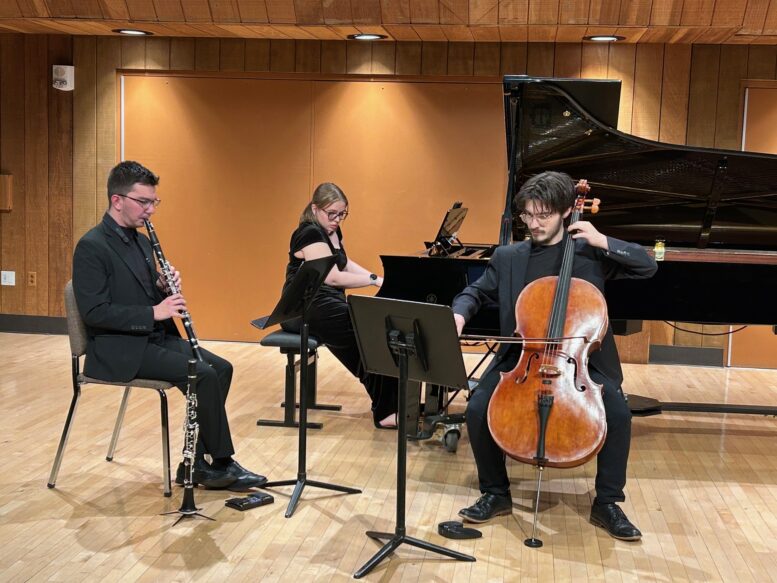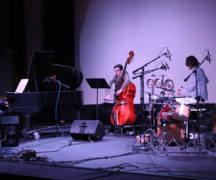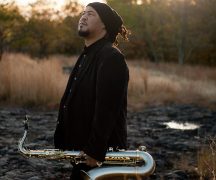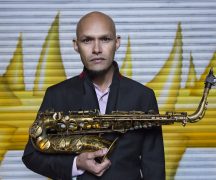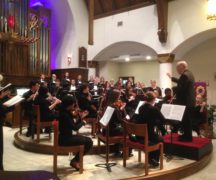By DAVID DUPONT
BG Independent News
The members of the Hansen Trio finished their four years in the Wayland Chamber Music Competition where they began: in the winner’s circle.
Justin Brown, clarinet, Joshua Lyphout, cello, and Abigail Petersen, piano, won the undergraduate division in he competition held Saturday. In 2022 the ensemble placed second. In the intervening years individual members have won with different ensembles. Lyphout and Petersen also performed in a graduate division quintet this year. Last year the trio joined with a graduate student violinist and won the graduate division.
Now the members of Hansen Trio — so named because they all have Hansen Fellowships — will graduate. Cellist Lyphout will be off to Germany for further studies while and Petersen and Brown are headed to graduate schools yet to be determined.
Petersen will study collaborative piano. She values the close interactions with fellow musicians that chamber music involves, noting “Justin and Josh are very dear to me.”
The Wayland Competition, said Brown, is “just such a great opportunity to share all our work, and the collaboration with Justin and Abby has been the best part.”
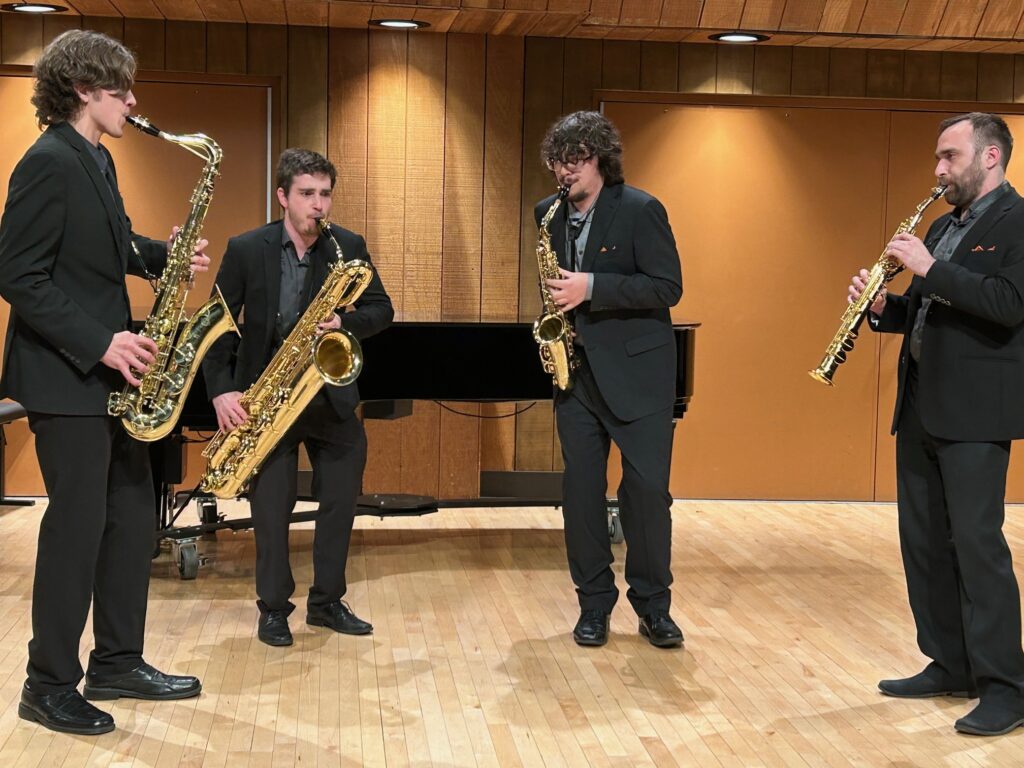
In addition to the Hansen Trio, other winners were:
The Big Su saxophone quartet with Garrett Evans, soprano saxophone, Jake Loitz, alto saxophone, Adam Hanna, tenor saxophone, and Sam Valancy, baritone saxophone, first place graduate division.
BGSU Graduate Tuba Quartet with Sakda Pharchumcharna, Connor Remington, Matt Brewton, and Kyle Recker, tubas.
The Vyšehrad Trio, with Lexi Jones, violin, Jackson Cook, cello, and James Moore, piano, second place undergraduate division
Ivy Quartet, with Matthew Reed, soprano saxophone, Ava Boedicker, alto saxophone.Aidan Peper, tenor saxophone, and Mary Borus, baritone saxophone, undergraduate honorable mention.
The members of the first place ensembles receive $200 each, and those in the second place ensembles receive $100 each.
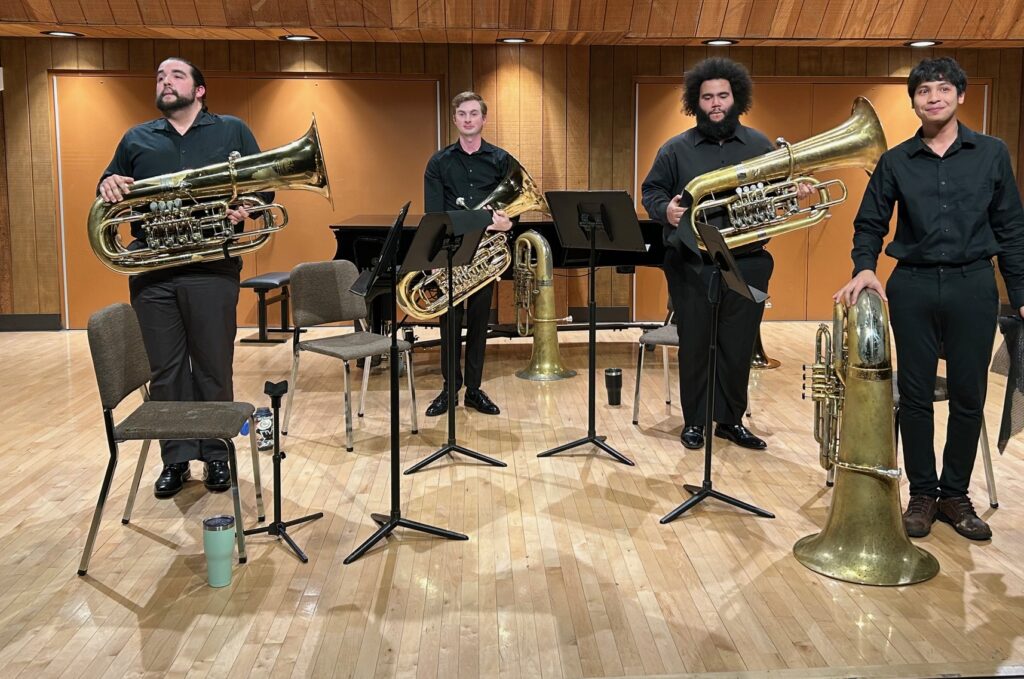
Hannah Levinson, the coordinator of the event, said the judging panel was impressed with the size and diversity of the field. It ranged from traditional piano trios with piano, cello and violin to the more unusual tuba quartet. Eight ensembles competed in the undergraduate division, and five ensembles competed in the graduate division.
The repertoire ranged from the classics such as the Haydn trio performed by the Vyšehrad Trio, to freshly minted contemporary pieces, which are the more familiar fare for the competition. The ages of the winners ranged from the Vyšehrad Trio, who are all first-year students, to the doctoral students in Big Su.
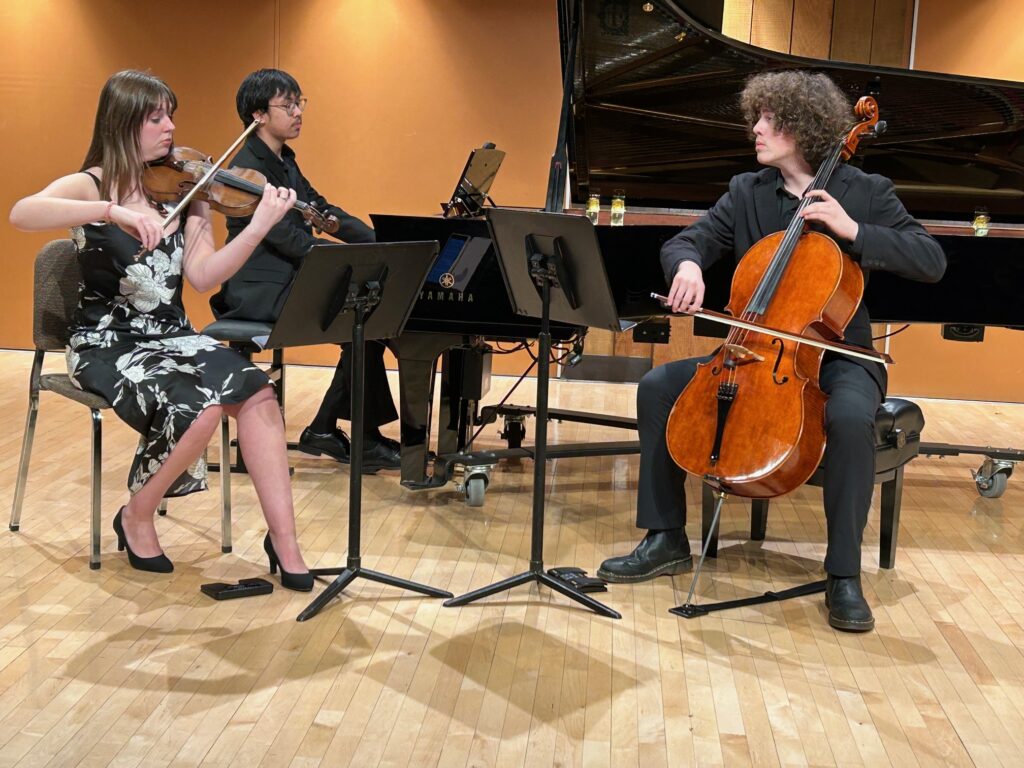
Everything performed “was at a very high level,” the judges said according to Levinson, Judging the competition were: Jeffrey Heisler, saxophone, Oakland University; Ross Karre, percussion, Oberlin Conservatory; Juliet White-Smith, viola, Ohio State University, and Heather Zweifel, trumpet, Michigan State University.
According to Levinson, the judges said: “The winners had a sense of cohesion and came together with a real performance.”
The epitome of that was Big Su. They had their intricate scores memorized and that allowed them to choreograph their highly energized performance. Their motions and gestures highlighted the conversational ease of their interactions, and brought out the nuances of the music.
They moved in formations evoking the geese in William Albright’s Fantasy Etudes. That piece at times had a wacky quality like futuristic cartoon music. The musicians, Evans said, are instructed by the composer to play some passages in “a sexy, sleazy, commercial style.” The quartet obliged and added their own steps to it.
While the Albright quartet is well known among saxophonists, Gabriella Smith, who composed “Spring/Neap” is “up and coming.”
Big Su recently won second place in the mixed instrumental division at the International Coltman Chamber Music Competition at the University of Texas in Austin.
That’s a tribute to the amount of hard work, as much as 15 hours a week, the musicians put in, said John Sampen, who coached the ensemble.
Music Dean William Mathis said that Lyphout, Brown, and Petersen really “leaned into” their Hansen Fellowships, which provide funds for travel to competitions, festivals, and performances, and for recording.
Brown said that the repertoire for clarinet, cello, and piano is fairly limited and they’ve performed most of it. The crown jewel is the trio by Brahms, so in their last semester they have now come around to it. They combined its drama with a more light-hearted trio by Italian film composer Nino Rota.
In a change in format, this year the winners were announced after the preliminary round in the afternoon, with the first and second place winners returning to Bryan Recital Hall to present the winner’s circle concert in the evening.
Not having the panel of judges seated in the middle of the hall had a liberating effect, Petersen said. “I was taking more risks,” she said, “I threw in some curveballs. I’d do it again.”

